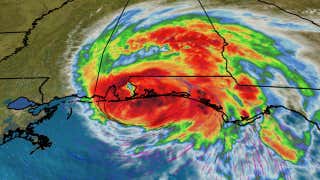



Natural, straight-from-the-Earth foods are thought by many to be the best way to eat for your health; particularly as spring, with its bounty of locally produced produce, is just around the corner.
Recently, the nutrition advocacy organization themade its annual contribution to the natural-eating movement with its latest list of the 15 cleanest and 12 most-contaminated fruits and veggies found at American grocery stores, nicknamed the "clean 15" and the "dirty dozen."
The lists are based on the results of USDA tests on thousands of different produce samples taken in 2013, the most recent year for which data is available. The USDA keeps track 165 different pesticides in use.
(MORE: )This year, a certain fruit that’s known to “keep the doctor away” once again ranked as the nation’s dirtiest. See the full list in the slideshow above.The EWG's list originally intended to help shoppers who want to avoid pesticides — but don’t have deep pocketbooks — decide which foods to prioritize in organic shopping, the organization has said.But critics have said it does more, spreading fear instead of information.
It's a mistake to "equate the presence of a chemical with the presence of risk," Joseph Schwarcz, director of the Office for Science and Society at McGill University in Montreal,. "Where is the evidence that these trace residues are dangerous?”On the flip side, proponents of organic eating say we don’t really know the long-term affects of some pesticides on health, and that it's the consumer's decision what they want to eat.Whether organic foods are more nutritious than conventionally produced items is another hot debate, fueled by a well-known Stanford study that found no, they’re not higher in vitamins that their conventionally produced counterparts.
Genetically modified fruits and vegetables — which are actually uncommon in American grocery stores, according to the EWG — are another point of contention. However there’slinking GM foods to any kind of long-term health consequence.The EWG says that at its core, its list is just for informing consumers. "When they want foods whose conventional versions test high for pesticides, they can make an effort to locate organic versions,”.These issues aside, there's one thing everyone can agree on: Eating a wide variety of fruits and vegetables is essential for health — organic or not.
MORE ON WEATHER.COM: The 50 States of Superfoods: Healthy Foods from Every State




